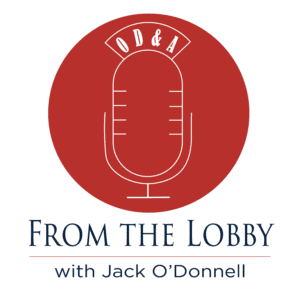State Fiscal Year 2022-23 Executive Budget Proposal Highlights
Transparency & Ethics Reform
- Term Limits—the Executive Budget includes a Constitutional amendment to limit all four statewide elected officials to two consecutive four-year terms in office.
- Discontinuing JCOPE & Renewing Ethics Oversight—The Executive Budget includes the Independent Ethics Reform Act of 2022, which would repeal the law enacting the Joint Commission on Public Ethics (JCOPE), and replace it with an independent commission on ethics and government selected by a committee of the State’s law school deans.
Tax
- Brownfields Tax Credits—The Executive Budget extends the Brownfields Cleanup Program—which was set to expire at the end of 2022—by ten years, until December 31, 2032. The Executive Budget also expands several components of the tax credit, provides new categories of eligibility for tangible property credits, establishes a program fee to pay for staff, and extends the site preparation and groundwater remediation credits for sites that may have been unable to complete work due to the COVID-19 pandemic.
- Tax Credit for Small Businesses’ COVID-19-Related Expenses—The Executive Budget includes a new capped refundable tax relief program targeting COVID-19-related expenses for small businesses.
- The program provides:
- Up to $250 million in additional relief to small businesses.
Eligible COVID-19-related capital investments include, but are not limited to, costs associated with expanding space to accommodate social distancing, HVAC equipment, expenses related to outdoor space expansions, as well as machinery and equipment to facilitate contactless sales.
Gaming
- Downstate Casino Licenses—The Executive Budget authorizes the issuance of a Request for Applications by the Gaming Facility Location Board for three additional licenses for the Downstate Region that were created in the original Upstate Gaming Economic Development Act of 2013.
Infrastructure & Economic Development
- Broadband and Digital Infrastructure—The Executive Budget includes $1.6 billion to support the ConnectALL initiative to provide affordable broadband access to New Yorkers in rural and urban areas statewide. The initiative aids in the removal of existing barriers to broadband access, including fee exemptions for rural deployments, standardizing processes for state land and rights-of-way deployments, and addressing issues in serving multiple-dwelling units.
- Offshore Wind Investment–The Executive Budget proposes $500 million for ports, manufacturing, and supply chain infrastructure needed to advance the offshore wind industry.
- Clean Water, Clean Air, and Green Jobs Bond Act—The $4 billion bond act (originally proposed by former Governor Andrew Cuomo) would support capital improvements and enhancements in the following areas: flood risk reduction/restorations; open space, working lands conservation, and recreation; climate change mitigation; and water quality improvement and resilient infrastructure. The bond act is planned to go before voters in the November 2022 general election.
- Economic Development—The Executive Budget provides $1.8 billion in new economic and community development funding across a number of valuable programs, including:
- Round XII of the Regional Economic Development Council (REDC);
- A sixth round of Downtown Revitalization Initiative, which will also include NY Forward as a way to enhance support for smaller, rural communities;
community based grants to enhance waterfronts;
- The New York Works Economic Development Fund;
- The RESTORE NY program, which aims to restore blighted properties;
- The Market NY Program;
- And funding for the Olympic Regional Development Authority to continue upgrading and modernizing facilities and ski resorts.
Higher Education
- The Executive Budget proposes expanding the Tuition Assistance Program (TAP) for part-time students in degree programs and community college students enrolled part- time in high-demand workforce credential programs; granting incarcerated individuals’ access to TAP; accelerating the FY 2022 Enacted Budget TAP Gap funding plan at the City University of New York (CUNY) Senior College campuses; investing in full-time faculty at CUNY; establishing child care centers on SUNY and CUNY campuses; and increasing funding for higher education opportunity programs and training centers.
Healthcare
- Healthcare/Frontline Worker Bonus—The Executive Budget proposes providing frontline healthcare workers a bonus payment of up to $3,000 to incentivize the recruitment and retention of qualified frontline healthcare and direct support professionals. The amount of the bonus will be based on hours worked and length of time in service. Direct Care State employees will also receive bonuses. The total State cost is estimated at $1.2 billion.
- Statewide Health Care Transformation Fund IV—The Financial Plan reserves $1.6 billion of additional resources to further support multi-year investments in healthcare transformation and sustainability (including projects not funded in the previous round).
Labor
- Increasing Criminal Penalties for Wage Theft—The Executive Budget includes language increasing the criminal penalties for egregious wage theft and violations of other labor laws to align with other comparable criminal offenses.
- 529s for Apprenticeship Programs—The Executive Budget includes an initiative to expand access to apprenticeship programs, by making apprenticeships a qualified use of college (529) savings accounts under New York State law as allowable under the Internal Revenue Code.
